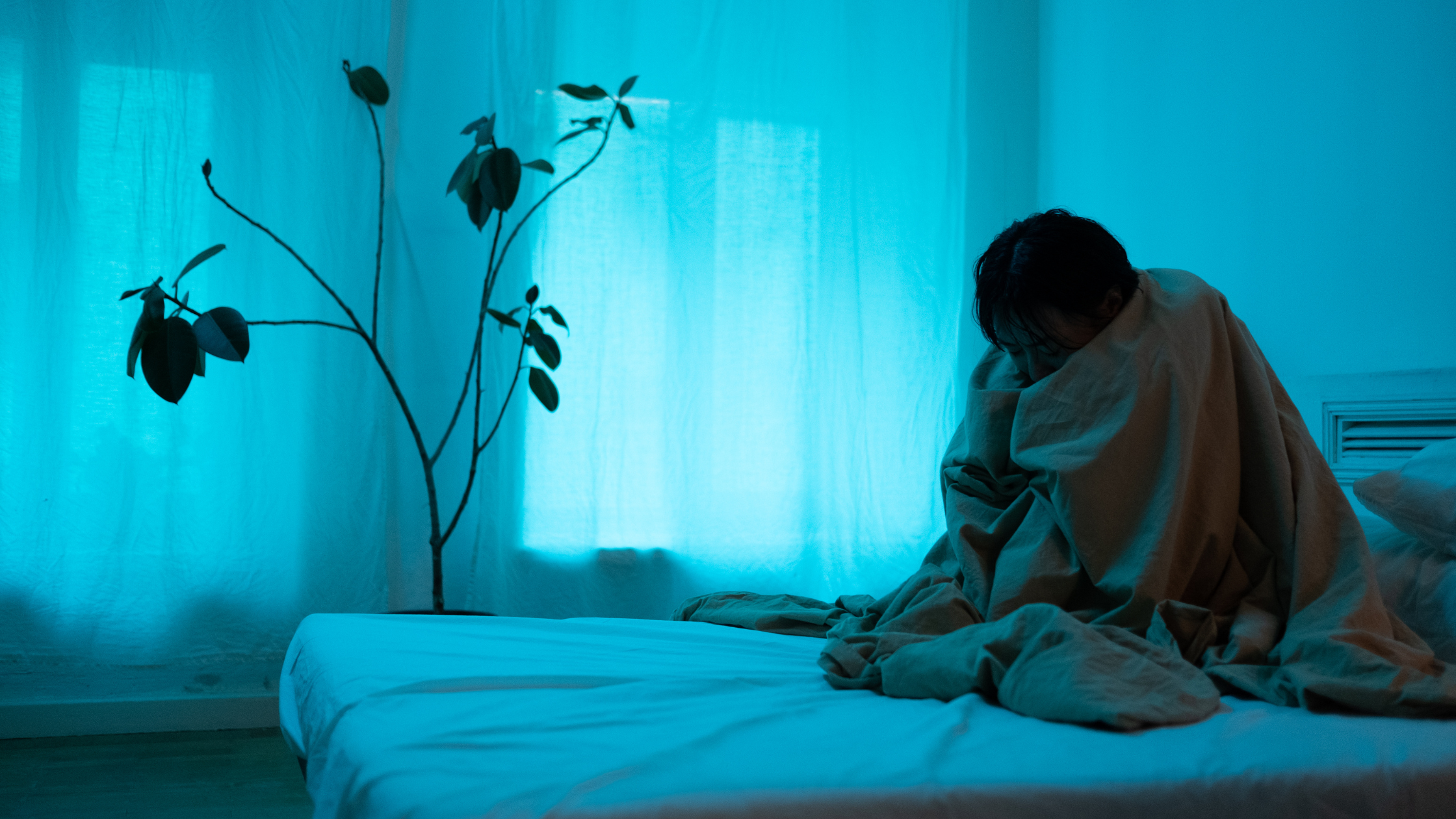
Both insomnia and depression are interrelated conditions that can worsen the other. The good news about this is that treating one, often improves the other, and treating both can drastically improve the quality of your life.
The link between them is bidirectional. Worsening depression, often leads to insomnia. And an inability to sleep, often leads to worsening depressive feelings, as sleep is required for mental wellbeing. Continue reading to learn more about how treating both conditions works to improve the other.
The link between depression and insomnia
Being unable to sleep through the night can be a sign of depression. Poor sleep has been show to significantly worsen symptoms of many mental health issues. One study showed that insomnia was significantly associated with an increased risk of developing depression. Some of the reasons for this may be the fact that a loss of sleep can cause cognitive and mood changes, a loss of emotional regulation and stability, and can induce a stress response and increase inflammation.
Other research has supported the bi-direction of this relationship, showing that 90% of those with depression have sleep complaints that include insomnia, narcolepsy, disordered breathing, and restless legs syndrome.
What to treat first?
If you have insomnia and depression, you may be wondering which one you should treat first. This depends on the individual and the severity of your symptoms. If your primary issue is depression, and you are prescribed an antidepressant, then your mood may improve, and so will you sleep. Or, if you can't sleep, and that is your primary issue, then a sleeping pill may improve your mood and alleviate some feelings of depression you may be experiencing.
Non-pharmacological treatment
If medication is not something you would like to explore as a first-line option, there are other treatments that you can use instead, or in conjunction with. Cognitive behavioral therapy is a short-term therapy, and is the first-line treatment for insomnia and depression. CBT is led by a therapist or psychologist where they help you change the link between your thoughts and behaviors until they align in a more positive manner. This may be combined with other therapeutic techniques that can help you improve your sleep, like sleep hygiene and relaxation techniques.
Relaxation techniques like deep breathing, visualizations, progressive muscle relaxation, and biofeedback are safe and effective options to help you relieve some pre-bedtime anxiety and depressive feelings that may be interfering with sleep.
Exercise is a proven beneficial component of sleep. Although you exercise earlier in the day, daily exercise has been shown to drastically improve your ability to fall asleep and stay asleep. Exercise has also been shown to effectively improve depression symptoms, especially when in combination with medicine.
Mind-body practices is a another option, and includes exercises like yoga, tai chia, qigong, and other meditative practices. These connect your mind and body in a non-stimulating manner that can help you be more present, and relax your mind and body before going to bed.
In addition to these activities, there are some natural supplements that can also enhance your mood and sleep. Although you should consult a physician before consuming them, here are a few options to think about if you need that extra support:
- Valerian root, magnesium, and passionflower, all of which can increases your GABA, a neurotransmitter that can improve mood and help with sleep.
- Lavender has antioxidant effects that can reduce inflammation and create overall better health and well-being. Lavender acts on the cholinergic system, which may be shown to have a positive impact on mood and sleep.
- Tryptophan is a precursor to serotonin, which is a neurotransmitter that improves sleep and mood. In fact, most antidepressant medications work by increasing serotonin in the brain for improved mood.
Medication for insomnia and depression
There are medication options for insomnia and depression. It's important to speak with your doctor before taking over-the-counter pills, especially if you are going to begin a prescription to address these two issues.
Medication falls under various categories, including benzodiazepines, non-benzodiazepines, melatonin receptor agonists, histamine receptor agonists, and orexin receptor agonists. These medications are intended for short-term use, as some of them can build dependence (benzodiazepines). Always work with your doctor before starting a new medication, and try not to combine medications for sleep. Sedative medications can also run the risk of daytime fatigue, confusion, and slowed reaction time.
The most important aspect of curing insomnia is to find the root cause and treat it. Medications and relaxation techniques are just band-aids to help you sleep during the process of figuring it out.
Medication for depression include selective serotonin reuptake inhibitors, serotonin and norepinephrine reuptake inhibitors, atypical antidepressants, tricyclic and tetracyclic antidepressants and monoamine oxidase inhibitors. The first two classes are the most used, and can treat insomnia associated with depression.
There are even some antidepressants, that because of their sedative effects, are often used to treat insomnia even apart from depression. these include amitriptyline, trazodone, and mirtazapine.
If you are having trouble falling asleep or staying asleep, and think that depression may play a role (either the cause or the result), then please consult a sleep health professional at our center by clicking the orange button below and taking a free online sleep test.
https://www.healthline.com/health/insomnia/treating-insomnia-and-depression#outlook

